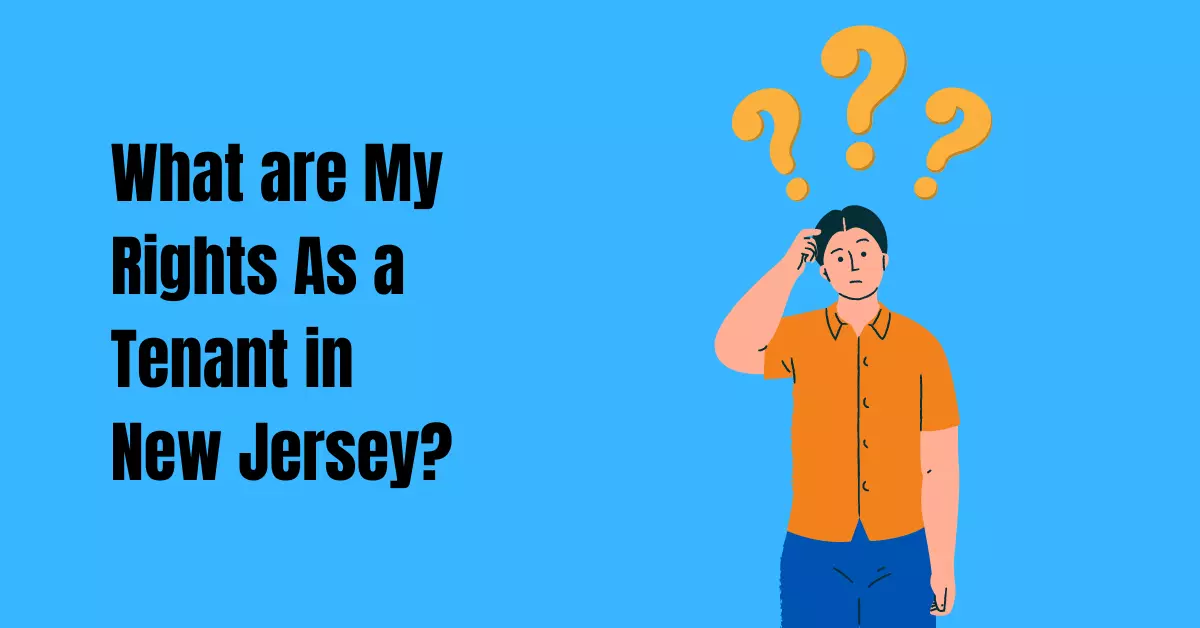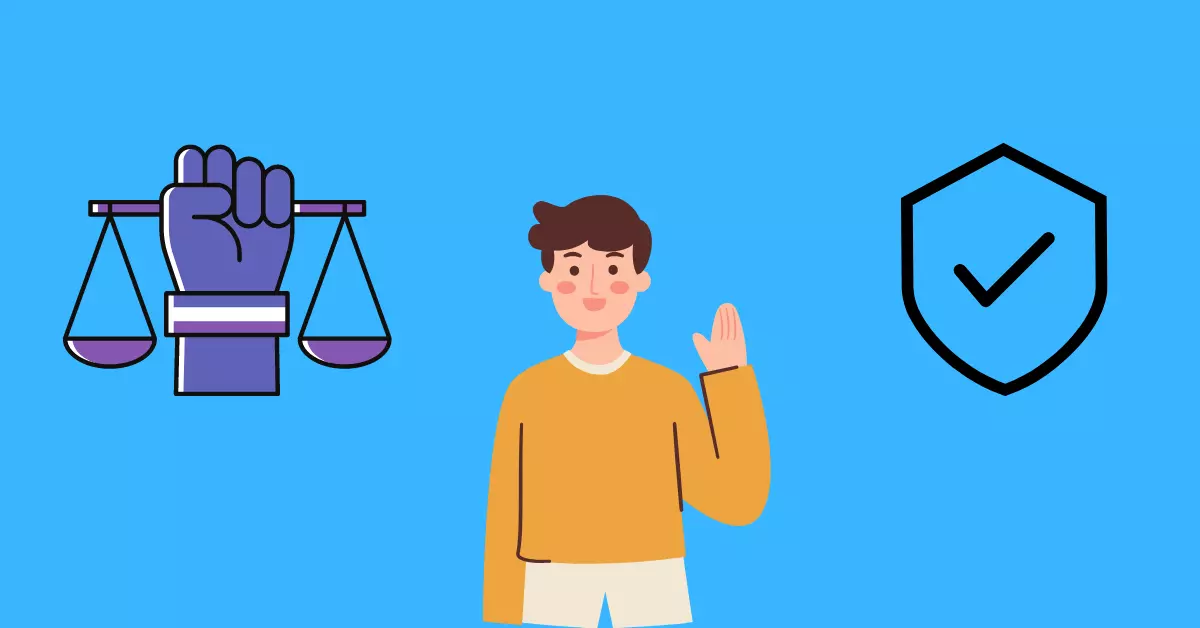What are My Rights As a Tenant in New Jersey? The Checklist
As a tenant in new jersey, you have specific rights under the law. You have the right to live in a safe and decent apartment, not be charged excessive fees, and have your security deposit returned within 30 days of the end of your lease.
This article will provide an overview of some of the fundamental rights available to tenants in new jersey. It’ll make you well-informed and equipped to deal with any issues that may arise throughout your tenancy.

Nj State Laws On Tenant Rights
New Jersey has various laws in place to protect tenants from being taken advantage of by landlords. As a tenant, it is crucial to understand your rights to ensure that you are not being unduly harassed.
We will discuss various nj state laws on tenant rights, including security deposits, eviction proceedings, rent control, habitability, and quiet enjoyment.
Security Deposits: What Landlords Can And Cannot Deduct From Security Deposits?
Security deposits are a common expense when renting an apartment, and nj state law puts in place specific requirements for what can and cannot be deducted from such a deposit.
Here are the key points to be aware of:
- Landlords should refund the security deposit and additional interest within 30 days of the end of the lease.
- Landlords are only allowed to withhold money from the deposit to cover unpaid rent, cleaning fees, damages beyond normal wear and tear, and any other lease violations.
- Landlords must provide a written itemized list of any deductions made from the deposit, including the cost of repairs and cleaning.
Rights And Protections Tenants Have During The Eviction Process
Eviction proceedings can be frustrating, but tenants have rights and protections under nj state laws. Here are some key points to be aware of:
- Landlords must give tenants notice before initiating eviction proceedings.
- Tenants can defend themselves in court and may have a right to an attorney.
- Landlords may not force tenants out of the property without going through the court process.
- If the landlord is in violation of the lease, such as failing to make necessary repairs, tenants can use that as a defense in eviction proceedings.

How Rent Control Works In Nj And Which Cities Are Covered
Nj has several cities that have rent control laws in place. Here are key points to be aware of:
- Rent control means that a landlord can only increase rent by a certain percentage each year.
- The rent control laws apply to specific cities, including Hoboken, union city, west new york, Weehawken, and Guttenberg.
- The laws vary based on each city and can change over time.
Habitability: Laws Pertaining To The Condition Of The Rental Property
Nj state law puts in place requirements for habitability, meaning landlords must ensure that rental units are fit for human habitation.
Here are key points to be aware of:
- Landlords have an obligation to maintain the rental unit in a habitable condition.
- Habitability includes having sufficient water, heat, and electricity and ensuring the space is free from mold and pests.
- If landlords fail to make necessary repairs, tenants have the right to report the issue and have the problem fixed.
Tenant’S Right To Enjoy The Rented Property Without Interference
As a tenant, you have a right to the peaceful enjoyment of your rental unit. This means the landlord cannot interfere with your right to quiet enjoyment of the property.
Here are key points to be aware of:
- Quiet enjoyment includes the right to use the property without interference from the landlord.
- Landlords cannot enter the rental unit without proper notice and must respect tenant privacy.
- If landlords violate the tenant’s right to quiet enjoyment, tenants have the right to take legal action.
Additional Protections For Nj Tenants
As a tenant in new jersey, it’s crucial to understand your rights and the protections afforded to you under the law.
Along with the standard tenant protections, there are additional provisions in place to help safeguard your interests as a renter.
Here are some of the key additional protections every new jersey tenant should know:

Renters’ Insurance: Understanding Your Insurance Needs And Options
Renters’ insurance provides protection for your personal belongings should they become damaged or stolen. It also provides liability coverage in case someone is injured on your rental property.
While not legally required in new jersey, renters’ insurance is highly recommended – especially given the high cost of replacing or repairing personal items.
Consider the following when choosing renters’ insurance:
- Coverage limits
- Types of coverage (e.g., personal property, liability, temporary living expenses)
- Deductibles
- Premiums
How Disability Laws Impact Tenants And Renters
Disability rights laws in new jersey prohibit landlords from discriminating against tenants based on disabilities they may have.
Landlords must make reasonable accommodations to ensure that tenants with disabilities are able to fully use and enjoy the rental property.
These accommodations may include things like wheelchair ramps, reserved parking spaces, or modifications to common areas.
Understanding Your Rights In Cases Of Housing Discrimination
It’s important to understand that tenants cannot be discriminated against when it comes to rental housing.
Landlords cannot refuse to rent to someone based on their race, religion, national origin, gender, sexual orientation, or other protected categories.
Additionally, landlords cannot advertise discriminatory preferences in their rental advertisements or create different terms or conditions for tenants based on such preferences.

“No-Fault” Evictions: What They Are And How To Handle Them
New Jersey law allows landlords to perform “no-fault” evictions, which means they can evict a tenant for reasons not related to the tenant’s behavior.
These reasons commonly include the landlord wanting to occupy the property themselves or wanting to make major renovations.
In the case of a “no-fault” eviction, the landlord must provide notice to the tenant before initiating the eviction process and may be required to provide relocation assistance.
Tenant Advocacy Groups: Resources Available To Tenants For Support
Tenant advocacy groups provide valuable resources and support to renters in new jersey. These groups offer everything from legal advice and representation to assistance in finding affordable housing options.
If you’re concerned about your rights as a tenant or are facing difficulties in your rental situation, consider reaching out to one of these organizations for guidance:
- Legal services of new jersey.
- Community health law project.
- New Jersey tenants organization.
Remember, as a tenant, it’s important to know your rights and understand the additional protections available to help safeguard your interests.
Take advantage of resources available to you and don’t hesitate to seek assistance if necessary.
Frequently Asked Questions Of What Are My Rights As A Tenant In New Jersey
Can My Landlord Evict Me Without Notice?
No, your landlord must provide written notice before attempting to evict you.
What Are My Rights If My Landlord Doesn’t Make Repairs?
You have the right to request repairs and withhold rent until they are completed.
Can My Landlord Enter My Apartment Without Permission?
Your landlord must provide 24 hours written notice before entering your apartment.
What Can I Do If My Landlord Discriminates Against Me?
You can file a complaint with the new jersey division on civil rights or consult a lawyer for legal advice.
Conclusion
Knowing your rights as a tenant in New Jersey lets you thrive, not just survive, in your rented space.
Rest easy knowing you’re protected from unfair eviction, given the right to habitable conditions, and you can legally withhold rent if necessary repairs aren’t met. Stand tall, knowing your tenancy rights have got your back.
Reference
https://www.nj.gov/dca/divisions/codes/offices/landlord_tenant_information.html